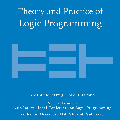Search-optimization problems are plentiful in scientific and engineering domains. Artificial intelligence has long contributed to the development of search algorithms and declarative programming languages geared towards solving and modeling search-optimization problems. Automated reasoning and knowledge representation are the subfields of AI that are particularly vested in these developments. Many popular automated reasoning paradigms provide users with languages supporting optimization statements: MaxSAT or answer set programming, to name a few. These paradigms vary significantly in their languages and in the ways they express quality conditions on computed solutions. Here we propose a unifying framework of so-called weight systems that eliminates syntactic distinctions between paradigms and allows us to see essential similarities and differences between optimization statements provided by paradigms. This unifying outlook has a significant simplifying and explanatory potential in the studies of optimization and modularity in automated reasoning and knowledge representation providing technical means for bridging distinct formalisms and developing translational solvers. Under consideration in Theory and Practice of Logic Programming (TPLP).
翻译:人工智能长期以来一直有助于开发旨在解决和模拟搜索优化问题的搜索算法和宣示性编程语言; 自动推理和知识代表是AI的次领域,这些发展特别赋予了 大赦国际的次领域; 许多流行的自动化推理范式为用户提供了支持优化说明的语言: MaxSAT 或答案集编程,仅举几个例子; 这些范式在语言和对计算解决方案表达质量条件的方式上差异很大; 我们在这里提议了一个所谓的加权系统统一框架,消除各种模式之间的综合区别,使我们能够看到各种模式所提供的优化说明之间的基本相似之处和差异; 这种统一的观点在自动化推理和知识代表的优化和模块化研究中有很大的简化和解释潜力,为弥合独特的形式主义和发展翻译解决方案提供了技术手段。 在逻辑编程的理论和实践(TPLP)中考虑。





